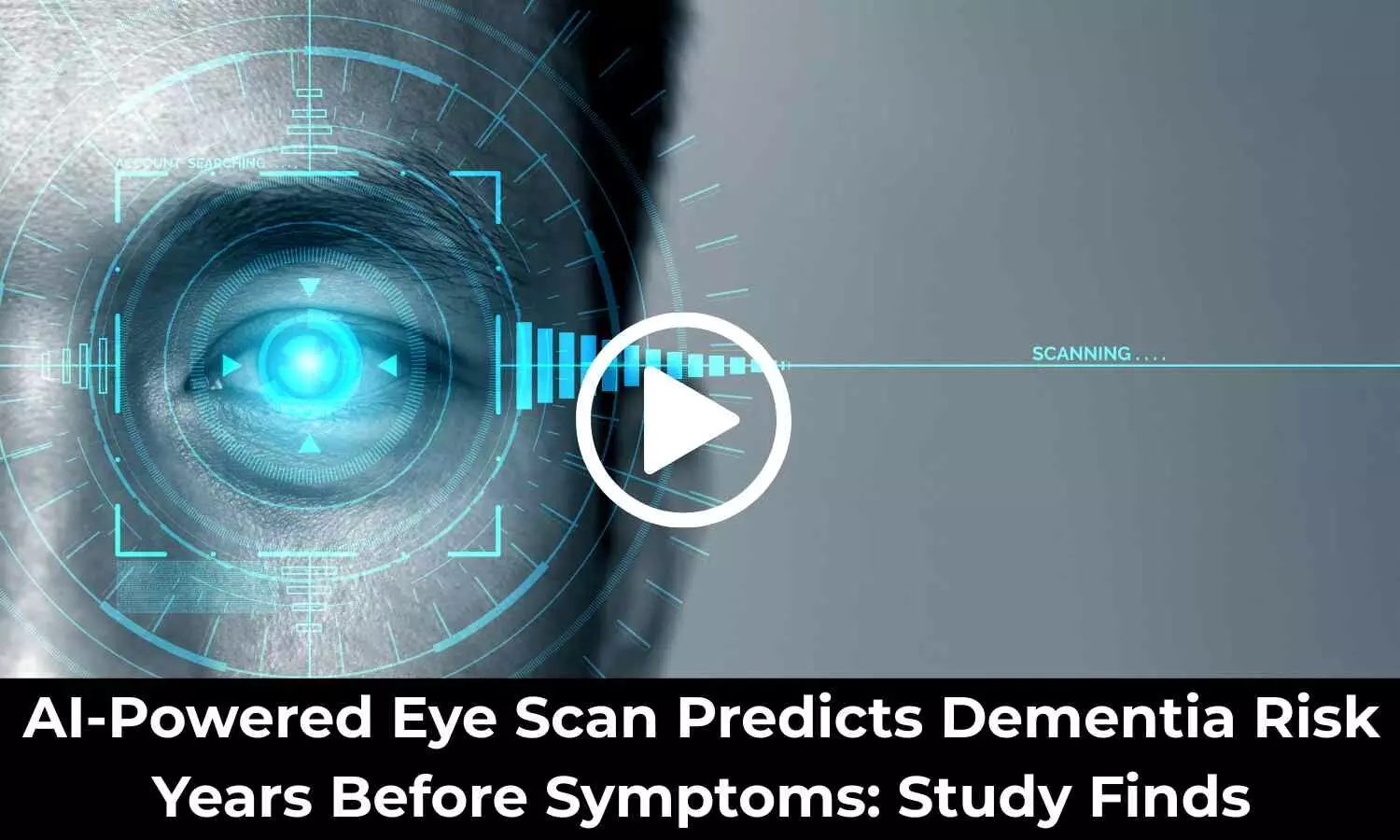AI-Powered Eye Scan Predicts Dementia Risk Years Before Symptoms: Study Finds
- byDoctor News Daily Team
- 15 September, 2025
- 0 Comments
- 0 Mins

A recent study led by researchers from the Yong Loo Lin School of Medicine at the National University of Singapore (NUS Medicine) has found that artificial intelligence (AI) analysis of retinal images can accurately predict a person’s risk of developing cognitive decline and dementia. Published in the journalAlzheimer’s & Dementia,the study introduces a deep-learning biomarker called RetiPhenoAge, which estimates the biological age of theretinausing standard eye scans. Jointly spearheaded by Professor Cheng Ching-Yu, Director of the Center for Innovation and Precision Eye Health, and Professor Christopher Chen, Deputy Chair of the Healthy Longevity Translational Research Programme, the study analyzed data from over 500 participants recruited from memory clinics across Singapore. Researchers discovered that a higher retinal biological age, as indicated by RetiPhenoAge, was associated with a 25% to 40% increased risk of cognitive decline or dementia over five years. To validate their findings, the team extended the analysis to a large cohort of over 33,000 participants from the UK Biobank. The results remained consistent, with elevated RetiPhenoAge correlating strongly with increaseddementiarisk over a 12-year follow-up. The researchers also linked retinal aging to neurodegenerative changes in the brain and age-related alterations in blood proteins, using MRI brain scans and blood biomarkers to reinforce the biological relevance of the retinal biomarker. “With RetiPhenoAge, we are able to non-invasively estimate an individual's biological age, offering valuable insights for both cognitive health management and broader aging research,” said Prof Cheng. “This can help doctors identify people at risk of cognitive decline or dementia, before symptoms appear, enabling more targeted interventions.” The study marks a major advance in digital biomarker development and highlights how AI can be harnessed with existing, non-invasive tools to combat dementia. Reference:Ming Ann Sim et al, A deep‐learning retinal aging biomarker for cognitive decline and incident dementia, Alzheimer's & Dementia (2025). DOI: 10.1002/alz.14601
Disclaimer: This website is designed for healthcare professionals and serves solely for informational purposes.
The content provided should not be interpreted as medical advice, diagnosis, treatment recommendations, prescriptions, or endorsements of specific medical practices. It is not a replacement for professional medical consultation or the expertise of a licensed healthcare provider.
Given the ever-evolving nature of medical science, we strive to keep our information accurate and up to date. However, we do not guarantee the completeness or accuracy of the content.
If you come across any inconsistencies, please reach out to us at
admin@doctornewsdaily.com.
We do not support or endorse medical opinions, treatments, or recommendations that contradict the advice of qualified healthcare professionals.
By using this website, you agree to our
Terms of Use,
Privacy Policy, and
Advertisement Policy.
For further details, please review our
Full Disclaimer.
Recent News
What Your Neck Size Says About Your Heart Health?...
- 04 November, 2025
EVOQUE TTVR Delivers Promising Real-World Results:...
- 04 November, 2025
Influenza Vaccination Reduces Mortality and Readmi...
- 04 November, 2025
Can Technology Make Kids Healthier? New Research S...
- 04 November, 2025
Daily Newsletter
Get all the top stories from Blogs to keep track.


0 Comments
Post a comment
No comments yet. Be the first to comment!